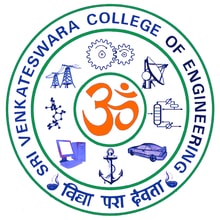Brochure for Civil Engineering Department
About the Department
The Department of Civil Engineering has started functioning from the year 2008, offering B.E. degree programme in Civil Engineering with the sanctioned intake of 30. At present, the department has ten faculty members having P.G. specialization in different areas of Civil Engineering such as Structural engineering, Construction planning & management, water resources engineering, Soil mechanics & foundation engineering & Environmental engineering & Management.
B.E.Civil Engineering program is accredited by National Board of Accreditation (NBA) till 30.06.2026 under Tier I, Washington Accord.

Department Vision
To become a department of excellence in Civil Engineering education and research with a supportive infrastructure, transforming individuals into globally competent civil engineers to serve the industry and society.
Department Mission
- Establish a top-notch learning environment with cutting-edge resources and facilities facilitating education, research, innovation and consultancy activities.
- Promote lifelong learning to provide solutions for real world problems with moral and ethical values by developing their skills and competency in the emerging fields of Civil Engineering.
- Offer technical and engineering solutions to the issues and challenges that arise in the construction industry at National and Global levels through experiential learning.
Programme Educational Objectives (PEOs)
Civil Engineering graduates during the first few years of graduation will:
a) Practice civil engineering in construction industry, public sector undertaking or as an entrepreneur by applying ethical principles and following norms of civil engineering practice.
b) Pursue higher education for professional development
c) Exhibit leadership and team working skills in their profession and other activities with demonstrable attributes to contribute to the societal needs and to adapt to the changing global scenario.
Programme Outcomes (POs)
Students in the Civil Engineering program should, at the time of their graduation, be able to
1. Apply the knowledge of mathematics, science, engineering fundamentals and concepts of Civil Engineering to the solution of complex engineering problems. (Engineering knowledge)
2. Identify, formulate, review research literature, and analyse complex engineering problems reaching substantiated conclusions using first principles of mathematics, natural sciences and engineering sciences. (Problem analysis)
3. Design solutions for complex engineering problems and design system components or processes that meet the specified needs with appropriate consideration for the public health and safety, and the cultural, societal, and environmental considerations. (Design/Development of Solutions)
4. Use research-based knowledge and research methods including design of experiments, analysis and interpretation of data, and synthesis of the information to provide valid conclusions for complex problems. (Conduct Investigations of Complex Problems)
5. Create, select, and apply appropriate techniques, resources, and modern engineering and IT tools including prediction and modelling to complex engineering activities with an understanding of the limitations. (Modern Tool Usage)
6. Apply reasoning informed by the contextual knowledge to assess societal, health, safety, legal and cultural issues and the consequent responsibilities relevant to the professional engineering practice. (The Engineer and Society)
7. Understand the impact of the professional engineering solutions in societal and environmental contexts, and demonstrate the knowledge of, and need for sustainable development. (Environment and Sustainability)
8. Apply ethical principles and commit to professional ethics and responsibilities and norms of the engineering practice. (Ethics)
9. Function effectively as an individual, and as a member or leader in diverse teams, and in multidisciplinary settings. (Individual and Team Work)
10. Communicate effectively on complex engineering activities with the engineering community and with society at large, such as, being able to comprehend and write effective reports and design documentation, make effective presentations, and give and receive clear instructions. (Communication)
11. Demonstrate knowledge and understanding of the engineering and management principles and apply these to one's own work, as a member and leader in a team, to manage projects and in multidisciplinary environments. (Project Management and Finance)
12. Recognize the need for, and have the preparation and ability to engage in independent and lifelong learning in the broadest context of technological change. (Life-long Learning)
Programme Specific Outcomes
Civil Engineering graduates will
I. Provide solutions for real life problems related to core areas of civil engineering by applying knowledge of mathematics, Basic and Engineering Sciences and by using appropriate engineering tools
II. Plan, analyse, design, execute and manage infrastructure projects considering safety, societal and environmental factors




